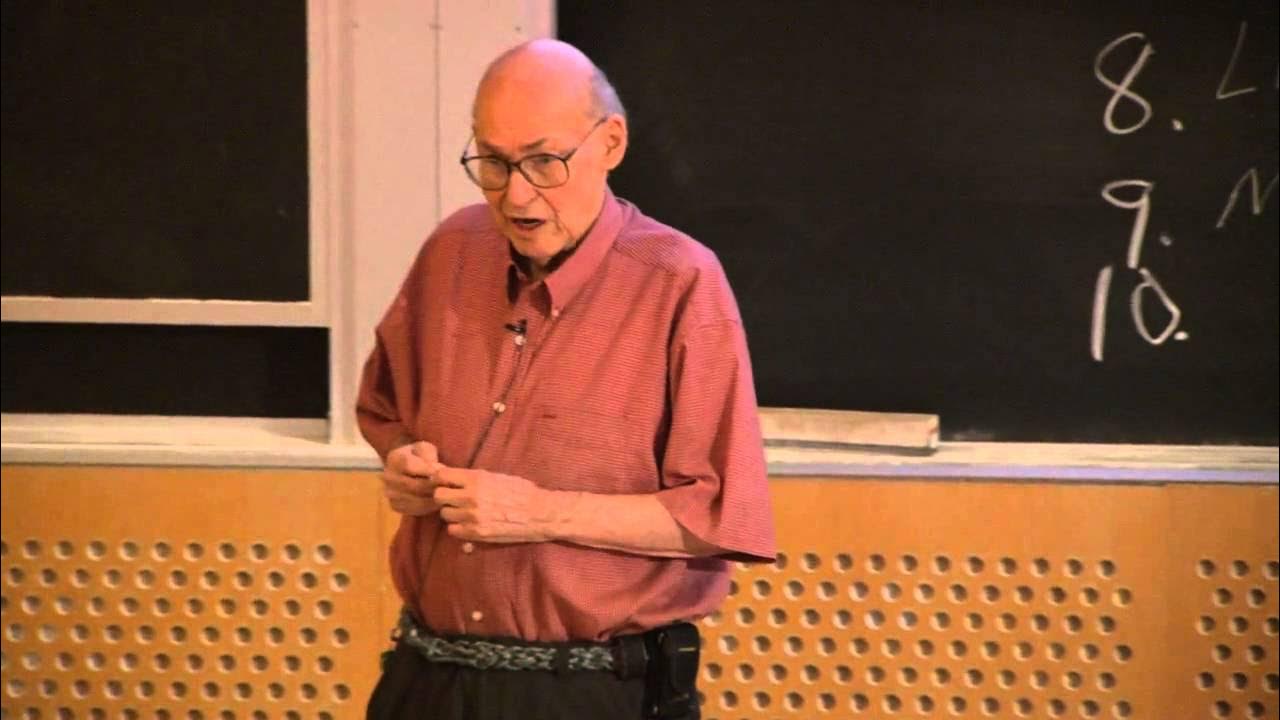Timothy O'Connor - What’s the Stuff of Mind and Brain?
Summary
TLDR视频脚本探讨了意识的本质,提出了两种截然不同的观点:一种认为所有心智活动完全基于大脑的物理活动,另一种则认为存在某种精神或灵魂的二元论。讨论者提出了一种“软二元论”的观点,认为虽然我们的意识体验依赖于大脑的适当功能,但这些体验本身并不是物理状态的简单复制。他们认为意识体验是大脑状态的因果产物,但具有不同于物理属性的属性,即所谓的感受质。这种观点试图在物理主义和二元论之间找到一个中间立场,强调了意识体验在自然世界中的因果统一性和独特性。
Takeaways
- 🧠 意识的本质是对话的核心议题,Tim博士通过神经生理学研究探索意识和大脑电活动之间的关系。
- 🧬 存在两种对立的意识理论:一种认为所有心理现象都基于大脑的物质活动,另一种认为存在某种非物质的灵魂或精神。
- 🤔 Tim提出了一种“软二元论”,认为意识可能既依赖于大脑的物质状态,又具有非物质的特性。
- 🔬 科学上,人们通常认为人的思想和体验完全依赖于大脑的功能,但大脑的复杂活动是否完全等同于我们的心理生活仍是一个开放问题。
- 🏌️♂️ 历史上的哲学家,如柏拉图,将心灵视为控制身体的非物质实体,但现代科学认为这种观点与实际不符。
- 🤯 意识的产生与大脑的特定功能紧密相关,例如,大脑受到损伤可能导致意识丧失。
- 🔄 意识体验与大脑的物理状态密切相关,但可能存在一种“质的”(qualia)体验,这种体验是主观的,无法仅通过物理状态来完全描述。
- 🔮 未来神经科学可能能够通过监测大脑活动来预测人的思考和感受,但这不意味着能够完全理解意识体验的本质。
- 💭 意识体验可能是大脑正确配置时产生的效果,但它们本身并不等同于任何物理状态,而是物理状态的因果产物。
- 🤲 意识体验具有因果效应,可以影响物理世界,例如,渴望喝水的想法可能导致实际伸手去拿水杯的动作。
- 🌐 这种观点认为,尽管意识体验在物理上完全依赖于大脑,但它们在性质上与物理状态是不同的,代表了一种属性二元论。
Q & A
提姆博士的博士研究领域是什么?
-提姆博士的博士研究领域是神经生理学,专注于大脑的电生理活动,探索人类意识和意识状态的本质。
在提姆博士看来,关于意识的两种截然不同的观点是什么?
-一种是物质主义观点,认为所有心智活动都基于大脑;另一种是二元论观点,认为存在某种灵魂或精神的非物质实体。
提姆博士提到的“软二元论”是什么意思?
-软二元论是一种介于物质主义和传统二元论之间的观点,它认为意识体验虽然依赖于大脑的物理状态,但它们本身并不是物理状态。
为什么提姆博士认为传统的二元论观点在当代知识体系下显得不合理?
-因为现代科学已经证明,我们的思考和意识状态与大脑的功能紧密相关,例如大脑受到损伤时,我们的意识会受到影响甚至消失。
提姆博士如何看待大脑与意识体验之间的关系?
-他认为大脑的特定配置能够产生我们的意识体验,但这些体验本身并不是物理状态,而是物理状态的因果产物。
提姆博士提到的“质的属性”(qualia)是什么?
-质的属性指的是主观体验的特性,例如看到颜色、尝到味道时的个人感受,这些是内在的、主观的现象。
为什么提姆博士认为意识体验不能完全归结为大脑的物理状态?
-因为意识体验具有独特的主观性,这种主观性与物理状态紧密相关,但它们在本质上是不同的,不能简单地等同。
提姆博士如何看待意识体验对大脑状态的影响?
-他认为意识体验不仅是大脑状态的产物,也能反过来影响大脑状态,例如我们想要喝水的欲望可以导致我们伸手去拿水杯的物理动作。
提姆博士提到的“属性二元论”(property dualism)是什么意思?
-属性二元论认为,尽管意识体验在物理上依赖于大脑的复杂状态,但它们在属性上与物理状态不同,具有自己独特的属性。
提姆博士认为属性二元论与物质主义相比有哪些优势?
-属性二元论提供了一个统一的自然世界视角,其中意识体验是现实的一部分,并且具有自己的影响力,这与物质主义认为意识体验仅仅是大脑状态的副产品的观点不同。
提姆博士如何看待意识体验的因果关系?
-他认为意识体验虽然完全依赖于大脑的适当功能,但它们在因果上与大脑状态是不同的,意识体验是大脑状态的结果,但具有自己的存在和影响力。
Outlines

此内容仅限付费用户访问。 请升级后访问。
立即升级Mindmap

此内容仅限付费用户访问。 请升级后访问。
立即升级Keywords

此内容仅限付费用户访问。 请升级后访问。
立即升级Highlights

此内容仅限付费用户访问。 请升级后访问。
立即升级Transcripts

此内容仅限付费用户访问。 请升级后访问。
立即升级5.0 / 5 (0 votes)





